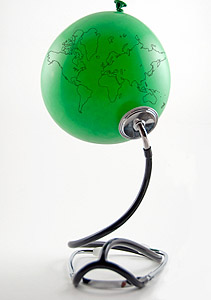 South Pacific producers of kava were delighted this week at the publication of a World Health Organization report declaring kava to be a safe product, although they feel that it should be available by prescription, rather than a simple over-the-counter herbal supplement, in an effort to better monitor its use in both the United States and abroad.
South Pacific producers of kava were delighted this week at the publication of a World Health Organization report declaring kava to be a safe product, although they feel that it should be available by prescription, rather than a simple over-the-counter herbal supplement, in an effort to better monitor its use in both the United States and abroad.
The chairman of the Fiji Kava Council Ratu Josateki Nawalowalo, who has long been battling the powers that be in an attempt to get kava recognized for the safe and effective herbal supplement with 3,000 years of safe use, said that as far as the kava industry in Fiji and the Pacific was concerned, it was a major breakthrough.
The participants of a conference, which was debating about whether or not kava bans should be lifted in places like Germany, decided that the bans were based on insufficient and inconclusive investigation. As a result, a three-person WHO Committee was appointed to look at the safety and efficacy of kava, and to finally answer the question, “is kava safe?” One of the members of the Committee is a University of the South Pacific staff member (Professor Sotheeswaran). The USP has been at the forefront of analyzing scientific data on kava to look at its efficacy and safety, and in a public seminar, Professor Sotheeswaran questioned the ban on kava products and provided evidence that kava was indeed safe.
The German Health Authorities have agreed that the kava ban was indeed based on an insufficient and inconclusive investigation and have partially lifted the ban on kava products in Germany. This is amazing news for Germany and the kava industry.
Exporters of kava in the Pacific Islands have been instructed to be aware that only the correct kava varieties should be exported when the German buyers are ready to buy them again. Quality control laboratories in Fiji and Europe have begun working on better analytical procedures to ensure that the kava varieties sold do not contain any unhealthy organic compounds which may cause health problems to the consumers.
Furthermore, manufacturers are also modifying their extraction processes so that kava pills and extracts contain the active constituents of kava roots and nothing toxic.





